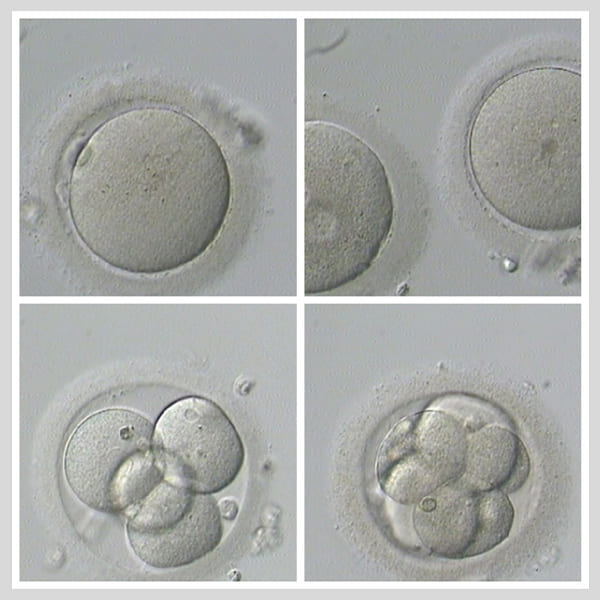- Home
- About Us
- Why BFI
- Treatments
Advanced IVF Treatment
Donor Services
Fertility Preservation
Advanced IVF Treatment
Donor Services
Fertility Preservation
- Locations
- Resources
- Contact Us
Pre - Implantation Genetic Testing - PGT
With the advancement of in vitro fertilization and genetic testing technology now the genetic diagnosis is possible at the embryo stage. This testing helps to identify genetically normal embryos.
Pre-implantation genetic testing – PGT-A tests the embryo before its implantation in the uterus and therefore before the onset of pregnancy.
Why Pre-Implantation Genetic Testing – PGT PGS PGD
Genetic testing can be for various reasons.
PGT-A – PGS
Pre-implantation Genetic testing for aneuploidy. It is also called PGS (Pre-implantation Genetic Screening). Genetic abnormalities of embryos like change in gene number (aneuploidy) is a major cause of IVF failure and miscarriage. PGT-A detects normal and abnormal embryos. We select embryos without aneuploidy for embryo transfer for improving implantation chances and reduce miscarriage risk.
Increasing female age can increase the chance of down’s syndrome in the foetus. Down’s syndrome is a non-lethal genetic abnormality causing mental and physical disability. PGT-A can prevent down’s syndrome.
PGT – A is indicated in patients of advanced female age, repeated IVF failure, severely reduced sperm count or motility and recurrent miscarriage.
PGT – A is the best treatment option for fastest success in IVF to minimize ‘Time to pregnancy”.
PGT-M – PGD
Preimplantation Genetic testing for monogenic disorders. It is also called PGD (Pre-implantation Genetic Diagnosis).
When a genetic disease or carrier status is identified in parents. PGT-M helps to prevent transmission of the genetic condition to the foetus/offspring. PGT-M can help when there is a defined genetic mutation, as in monogenic disorders.
Monogenic disorders are disorders due to a problem in a single gene only. PGT-M can help diagnose disorders such as Beta-thalassemia, sickle cell disease and spinal muscular atrophy type 1 haemophilia, Duchenne muscular dystrophy etc., at the embryo stage. We can prevent transmission of practically every disease or defect which can be inherited by a child from a mother or father if we know the defective gene responsible for that defect. This list is very long.

PGT-SR
Pre-implantation Genetic Testing for Structural Rearrangements. It is performed when there are genetic rearrangements in the wife and or husband. This can lead to a higher incidence of genetic abnormalities in the embryo. PGT-SR helps to identify these abnormalities. Thus, improving IVF success and reducing chances of miscarriage.
HLA matching
Some genetic conditions like thalassemia can only be cured permanently by bone marrow transplant or other similar treatment. For this, HLA matched donor is required. Getting a matching donor is extremely difficult. The couples who already have an affected child can conceive a not affected child, and that too a matching donor for the affected sibling.
Process of PGT
IVF process is a per standard protocol. When the embryos are ready, they can be biopsied, and genetic sample collection can be done on Day 3 or Day 5. For collecting cells for genetic analysis, a Laser is used to make a small opening in the outer wall of the embryo. A suction pipette gently sucks one or more cells from the embryo. Cells are sent for genetic analysis. Embryos are totipotent at this stage, so removing these cells will not harm the embryo.
Advantage BFI
BFI is pioneers of PGT technology in India.
BFI delivers PGT-A results within a day. Thanks to our precise technique and most advanced genetic testing laboratory support with all available genetic testing technologies like NGS, Array CGH and more. We have mastered meticulous execution, logistics too. This facilitates fresh transfer even in PGT A cycles. Early results also avoid the unnecessary cost of freezing abnormal embryos.
BFI has treated a very wide variety of genetic disorders, including some of the very rare diseases, also like the complete absence of hair on the body.
BFI successfully used the technology of PGD + HLA matching for thalassemia and helped a couple conceive a normal donor sibling (2021)! Two more on the way to deliver. A very few cases have recorded the world over.
